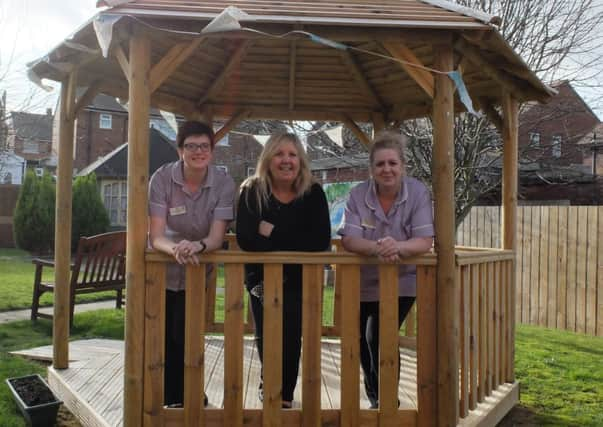Chatting could be key to improving the lives of dementia sufferers in care homes


Researchers found that increasing the amount of social interaction, combined with personalised care, also saves money, and said new approaches should be rolled out to “do justice to some of the most vulnerable people in society”.
Previous research has found that in many care homes, residents have as little as two minutes of social interaction per day.
Advertisement
Hide AdAdvertisement
Hide AdThe research - which was led by the University of Exeter, King’s College London and Oxford Health NHS Foundation Trust - trained key care home staff to deliver person-centred care, such as talking to residents about their interests.
When combined with just one hour a week of social interaction, the programme improved quality of life and reduced agitation and aggression in people with dementia, the study found.
Professor Clive Ballard, of the University of Exeter Medical School, said: “While many care homes are excellent, standards still vary hugely.
“We have previously found that the average amount of social interaction for people with dementia was just two minutes a day. It’s hardly surprising when that has a knock-on effect on quality of life and agitation.
Advertisement
Hide AdAdvertisement
Hide Ad“Our approach improves care and saves money. We must roll out approaches that work to do justice to some of the most vulnerable people in society.
“Incredibly, of 170 carer training manuals available on the market, only four are based on evidence that they really work. That is simply not good enough - it has to change.”
The large-scale study involved more than 800 people with dementia across 69 care homes in south London, north London and Buckinghamshire.
Two “care staff champions” at each home were trained over four day-long sessions, to take simple measures that involve talking to residents about their interests and decisions around their own care.
Advertisement
Hide AdAdvertisement
Hide AdThe approach also saved money compared to standard care. Researchers say the next key challenge is to roll out the programme to the 28,000 care homes in the UK to benefit the lives of the 300,000 people with dementia living in these facilities.
At Cherry Tree Gardens, a 66-bed dementia specialist care home in Rotherham, activity seasons are so intrinsic to the daily routine, its activity coordinators have been nominated for a national award.
Lisa Webster and Lisa Glynn are regional winners in the Great British Care Awards, and finalists in the national awards this March. They tailor sessions each morning and afternoon to the interests and needs of residents, including arts and crafts, hosting an entertainer, or making the most of the garden.
Group head of sales and marketing at Orchard Care Homes, which runs the home, Tracey Tomlinson, said: “As you walk in and through the different areas of the home, there’s a buzz of activity. Residents are engaged, and staff are happy and motivated.”
Advertisement
Hide AdAdvertisement
Hide AdDr Doug Brown, director of research at Alzheimer’s Society, added: “This study shows that training to provide this type of individualised care, activities and social interactions can have a significant impact of the well-being of people living with dementia in care homes.
“It also shows that this kind of effective care can reduce costs, which the stretched social care system desperately needs.”
Last month, the Yorkshire Post reported that thousands of people living with dementia could be missing out on the support they need because they have not been officially diagnosed with the condition.
Estimates for the region’s NHS Clinical Commissioning Group (CCG) areas show that on average, just 68.3 per cent of people with dementia have been diagnosed.